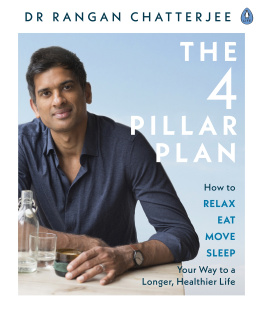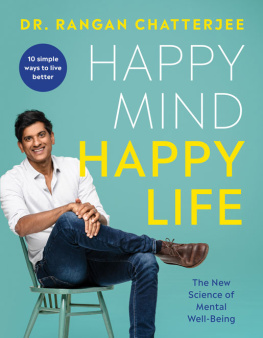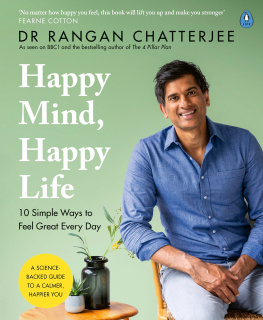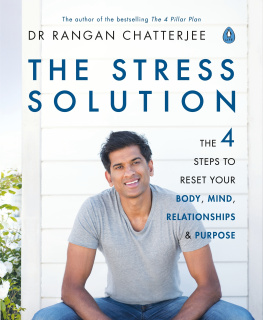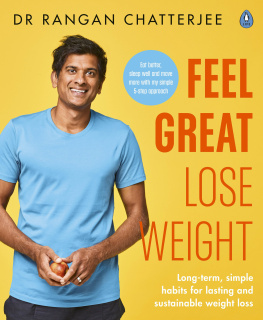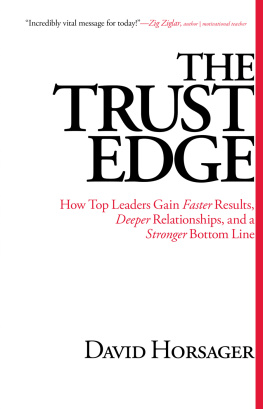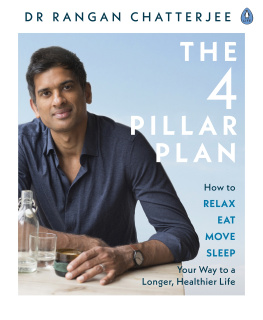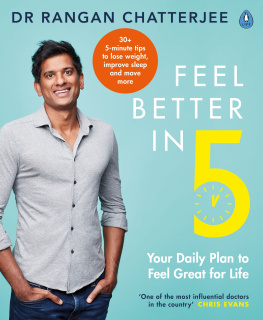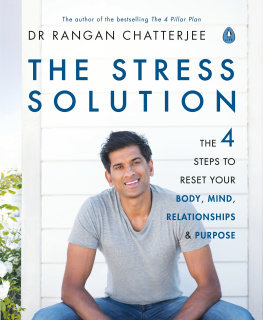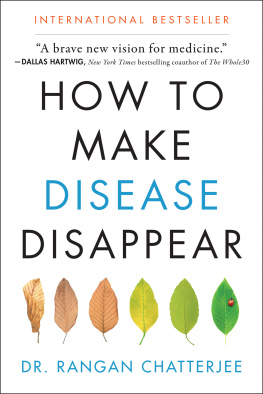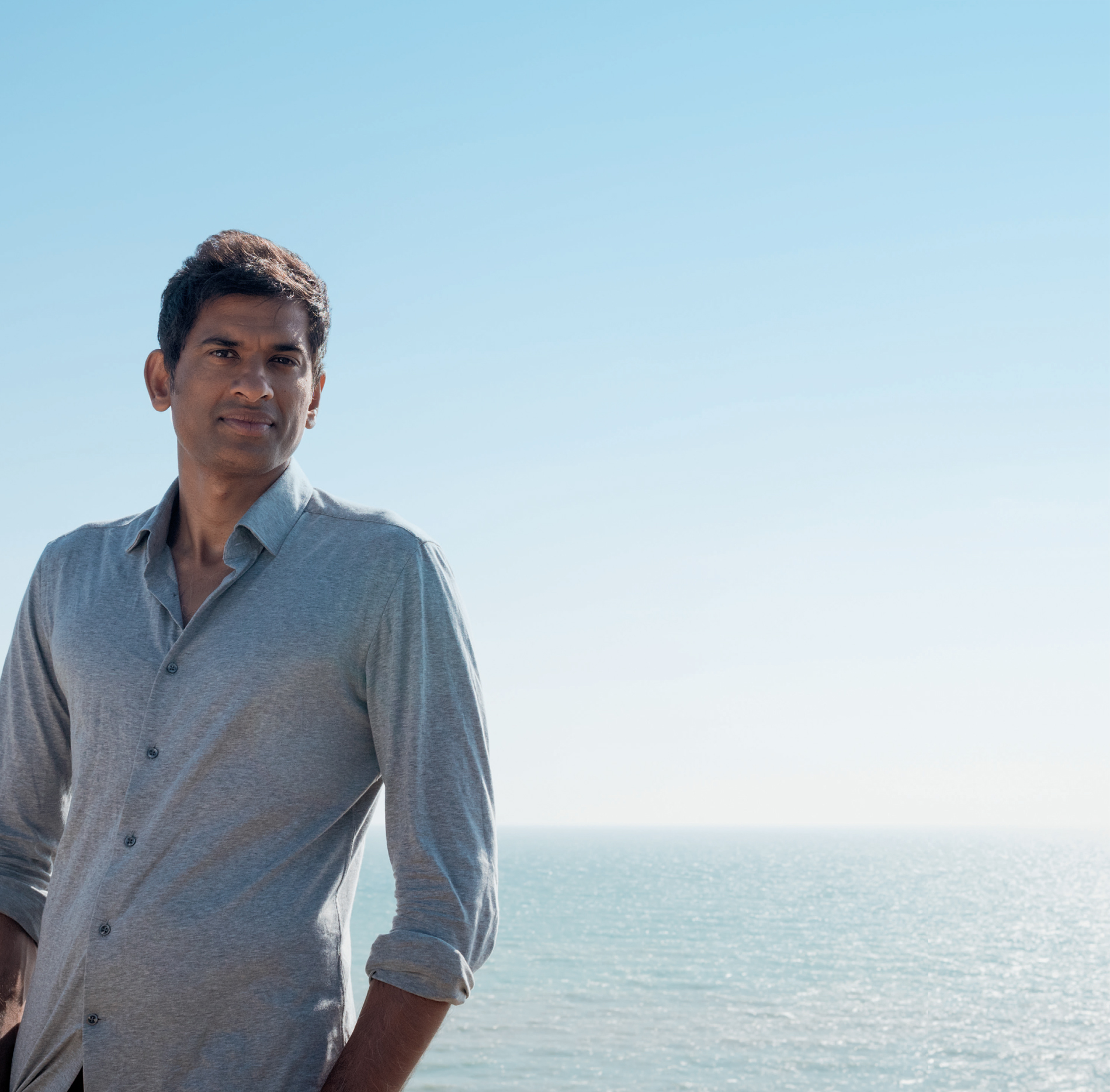PENGUIN LIFE
UK | USA | Canada | Ireland | Australia
India | New Zealand | South Africa
Penguin Life is part of the Penguin Random House group of companies whose addresses can be found at global.penguinrandomhouse.com.
First published 2018
Copyright Dr Rangan Chatterjee, 2018
Photography Susan Bell, 2018
Illustrations Son of Alan Folio Art, 2018
The moral right of the author has been asserted
Names and identifying details have been changed.
Any resemblance to actual persons is entirely coincidental.
Cover image Susan Bell
ISBN: 978-0-241-30356-6
For my Dad, you have influenced me
in more ways than you ever knew.
I wish you were still here.
INTRODUCTION
We are very used to the idea that certain lifestyles are bad for us. We know we shouldnt smoke; were aware that sitting at a desk for eight hours per day isnt a great idea, and that we should avoid eating lots of sugar. Perhaps a less familiar idea is that our lifestyles can actually be medicine. Its not just that we should avoid bad habits its that the right lifestyle and nutrition can actually improve our well-being, reverse our health problems and even make chronic diseases like type 2 diabetes, obesity and depression disappear.
It took a while for this to come into focus for me. A few years into my job as a GP, I realized that I was probably helping only around one-fifth of the patients walking through my door. I could certainly give them a drug to suppress their symptoms, but I was failing to get to the actual root cause of their problems. The trouble with the way we both think about health and practise medicine is this: we forget that the human body is one big connected system. If a patient presents to us with symptoms of depression, the usual textbook diagnosis is that its a psychological condition, caused by a chemical imbalance in the brain. That will almost certainly lead to the prescription of an antidepressant. What I found was that depression, along with many other conditions, could just as easily be driven by poor diet, high stress levels, a lack of physical activity or, even more likely, a combination of all three. Similarly with eczema: the textbook tells us to prescribe a steroid cream for the rash, but the rash is just a symptom. Theres little awareness that the causes of eczema are many, among them an overreactive immune system which in turn may be caused by food intolerance, abnormal gut bacteria or even high stress levels. Why not treat these problems, rather than the rash, and get rid of the eczema for good?
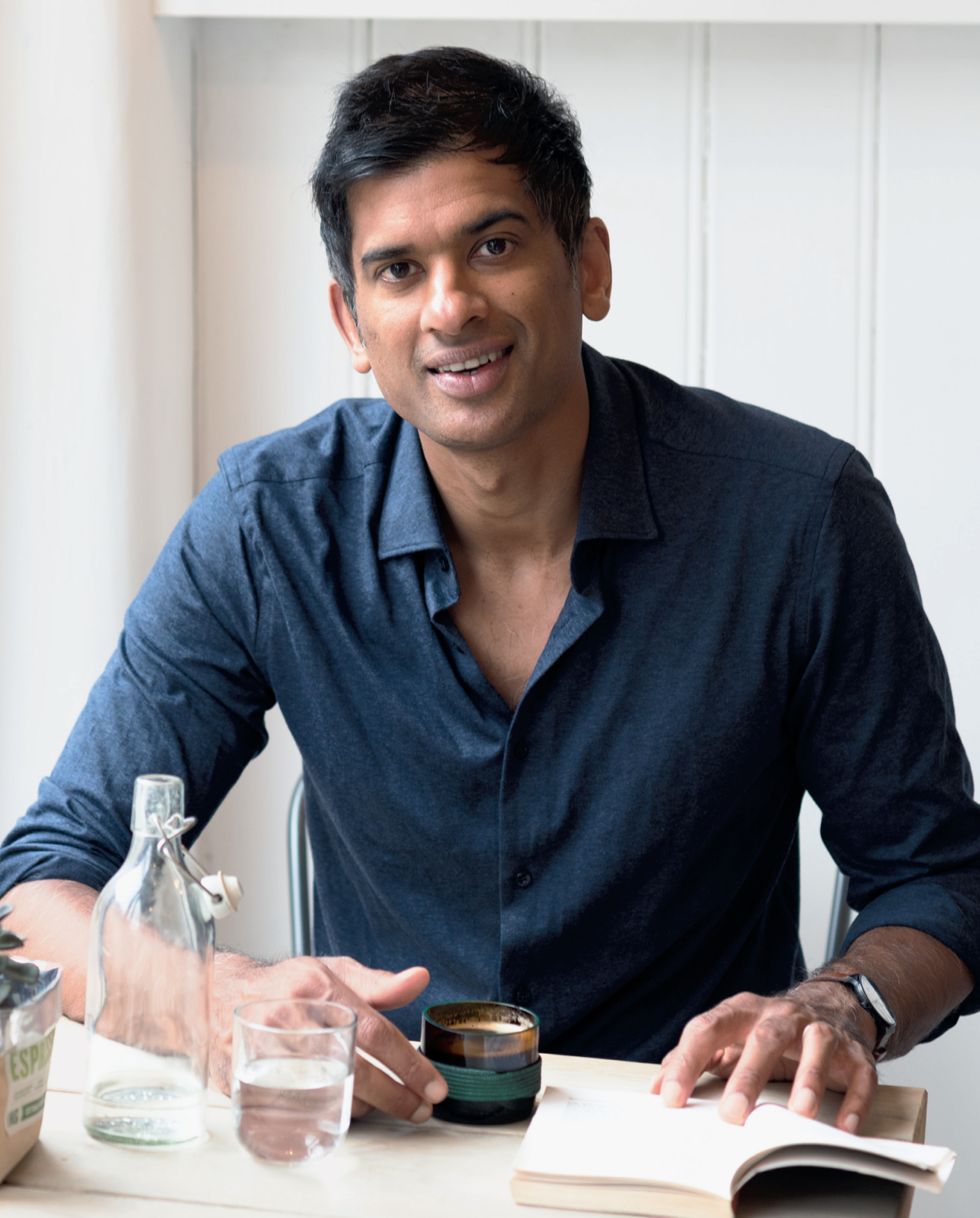
This is why I believe that the future of medicine will be about more doctors being super-generalists, rather than super-specialists. Just as our understanding of the human body is evolving, so the practice of medicine will also need to evolve.
The fact is, the body doesnt work as the simplistic and reductionist textbook expects it to. Its a highly evolved biological mechanism that is completely interconnected. This is why I was only managing to treat around 20 per cent of my patients. All too often, a symptom in one domain might actually have a cause in an area of the body that our medical training just doesnt tell us to look at. This is why I believe that the future of medicine will be about more doctors being super-generalists, rather than super-specialists. Just as our understanding of the human body is evolving, so the practice of medicine will also need to evolve. Good health occurs outside the doctors surgery not inside. Our lifestyles themselves are often the best medicine.
Ill give you an example of how the current way we view health is tripping us up with potentially very serious consequences. For years, doctors have struggled to treat a condition called chronic fatigue syndrome. This has led to it being one of the most frustrating conditions that we see, because we dont seem to be able to help. I think the reason medical researchers are struggling so badly to find an effective treatment is that theyre seeking a single cause and a single cure. But my research into the interconnectedness of the body has convinced me there is no single cause of this condition. I believe that patients who develop chronic fatigue syndrome are usually experiencing multiple problems, and in order to help them we need to address them all.
Our bodies, and the minds that interact with them, are systems of almost unparalleled complexity. Im heartened to see some research on this basis is now being conducted into incurable conditions such as Alzheimers. Its early days yet, and a lot more work needs to be done, but in that area at least its beginning to look as if the multipronged approach I endorse could achieve promising outcomes. I call such an approach progressive medicine. Its the idea that we need to look at as many factors as possible when examining what creates wellness or illness. Because the body is so connected, with relatively distant parts of it affecting each other, the cause (or causes) of any particular illness might not be immediately obvious.
That this interconnected view of health is presenting good outcomes comes as no surprise to me. Back in my surgery in Manchester, it has produced some truly eye-opening results. By taking this view, I find myself prescribing medications that merely address symptoms far less frequently than I used to. Today, Im much more likely to prescribe a diet high in healthy fats, some meditation and more physical activity than a mood-altering drug for depression. In prescribing small lifestyle adjustments that promote rest and relaxation, encourage better sleep and diet and get people moving, I have managed to reverse type 2 diabetes, get rid of depression, eliminate irritable bowel syndrome, lower blood pressure, reduce menopausal symptoms without the use of hormones, conquer insomnia, help people lose weight, get rid of severe migraines and even reverse autoimmune conditions all without the use of any medication. Were all familiar with the idea that lifestyle can be the cause of disease. Whats not common knowledge is that a change in lifestyle can also be the treatment and prevent us from getting sick in the first place.
The basic idea is simple. Because every of part our body affects, to a greater or lesser degree, pretty much every other part, we need to take a much more rounded view of treatment, one that considers every aspect of the patients daily life. How well do they sleep? What do they eat? Are they sedentary at work? Are they constantly consulting their smartphone or tablet? This is what I call the threshold effect. The connected system that is in the human body can deal with multiple insults in various places up to a point. And then the system begins to break down. The point at which it breaks down is our own unique personal threshold. When talking to patients, I liken it to juggling. Most of us can juggle two balls, even three or four. But when we throw that fifth one in,

